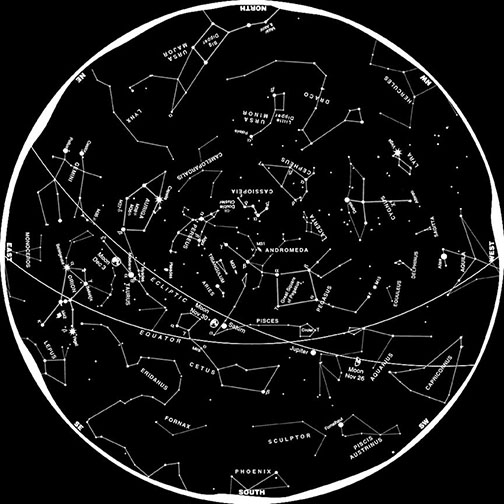
Invitation to My Literary Dinner Party
Ever wondered what it might be like to meet a writer? To engage in conversation or to hear the perspectives from literary creators themselves? I present to you my literary dinner party with five writers sharing their insights over drinks, dinner, and conversation.
#5) Augustina Bazterrica
Augustina Bazterrica published Tender is the Flesh back in 2017 to much acclaim. A dystopian tale centering around a global transition from the consumption of livestock to humans in only a few short decades. The focus on words constantly calls attention to how language itself can be (and often is) used to control people by altering understandings surrounding issues.
Bazterrica is a talented writer with her finger on humanity’s pulse, and her insights on societal structures would be invaluable. What wisdom could she impart on America’s structures and power imbalances, and are we also being controlled through our language as well? I have a feeling meat would be off the menu for Bazterrica so let’s start with a hearts of palm salad, a common dish in her country of Argentina.
#4) James Baldwin
James Baldwin was an insightful man who could express his ideas about the world in profound ways. During the era of the Civil Rights Movement, Baldwin was alongside historical figures like MLK and Malcom X, cataloging their journeys and the impact all three of them were having on the nation, echoing through time to even today. I couldn’t imagine a more remarkable individual to have the honor of meeting. What insights would he provide towards race relations in America today?
Baldwin spent nine years in France—something that potentially allowed his impeccable insights on our society by viewing it from afar—so I think a nice souffle as an appetizer would be appropriate.
#3) Isaac Asimov
Isaac Asimov was undoubtedly one of the greatest sci-fi writers of his time. His Foundation has genuinely impacted how I think about the world in terms of society, technological advances, and how easily everything can begin to crumble if we’re not careful.
Asimov used his craft and his genre of choice to highlight social issues he viewed during his time which still resonate to this day. What would be his impressions of modern society and what changes he sees—if any, as we could potentially still be dealing with issues he foresaw (psychohistory anyone?) during his time?
Born in Russia (but living in America from age three onward) a nice borscht soup feels appropriate to cleanse some palettes.
#2) Alan Moore
For anyone not familiar with the name, Alan Moore is the mind behind such groundbreaking graphic novels such as Watchmen and Batman: The Killing Joke. Moore took the traditional comic book genre, designed for action and entertainment, and injected it full of adult themes, social commentary, and heartbreaking drama that elevated the genre to new heights.
Moore is an anarchist, occultist, chaos magician, and perhaps most importantly, a curmudgeon of the highest order—this man hates adaptations of his work. Would Moore’s worldviews align with the others and if not, how so and why?
Hailing from the UK, I’d hope Moore would be fan of bangers and mash because it’s what’s for dinner.
#1) Kurt Vonnegut
Kurt Vonnegut was one of the greatest authors and minds of modern literature. Satirical and profound, witty yet charming, and capable of creating fantastic tales full of compelling, if not broken, characters.
His sci-fi is comparable to Asimov and his commentary rivals each of the aforementioned writers, but perhaps most importantly, he was able to see through the muck of our world and still have a sense of humor about it. “So it goes.” What would Vonnegut think of the world today? What stories would be brewing below the surface to reflect the issues in our modern world?
Vonnegut had a penchant for hot chocolate, and what finer drink to close out a dinner party than a sweet beverage to be shared among peers.
So, that concludes my list. A dinner party for the ages composed of incredible minds sharing their insights, commentaries, criticisms, and wisdom. All of which this world needs more of. What would your list look like?
Meet the blogger:

CAL MacFARLAND is a Creative Writing major in his final year at Hamline University. Self-proclaimed word wizard, Cal spends much of his time writing short stories, essays, and articles for publication. With a lifelong passion for incredible stories, he hopes to share his own with the world.

Creating Your Own Catalogue of Unabashed Gratitude: An Ode to Ross Gay
When I was young, I had a deep desire to prove I could be a great writer. At award celebrations in middle school, cool poets read these heartbreaking poems brimming with bruises, cigarettes and swearing. If my experience is at all normal, budding poets can feel pressure to be deep or somber, which can often translate to sadness or angst. I easily fell prey to romanticizing sadness in my early writing. I felt that, in order to win a contest or get published, my work had to be intense, moody, and sad.
Today, one writer in particular helps me juggle heartbreak and happiness in my writing: Ross Gay. He’s published five books and is also an avid gardener. When you visit the “about” section on Ross Gay’s website, several sentences come right up at the top, reading: Ross Gay is interested in joy. Ross Gay wants to understand joy. Ross Gay is curious about joy. Ross Gay studies joy.
Ross Gay knows there should be a place for grief and sadness in poetry. In one interview, Gay lays it out: “If I agreed I was happy all the time, I would be full of shit, because I’m not.” In many ways, it is productive for writers to grapple with grief in their work. Poetry wouldn’t be a human experience if it didn’t translate pain or create a space for collective mourning. People get sick, our friends die. We fall in love, we break up. Systems oppress us. But not every poem must reside in a place of helplessness.
How do we deal with this as writers? How do we deal with our personal struggles when it seems the whole world is falling apart?
Like Ross Gay has helped me discover, self care is an integral practice to have the capacity to tackle the world. We’ve come face to face with this realization from living through global pandemic. Yes, we know all about face masks and cups of tea, but how can we practice self care *in* our writing?
The thing is poetry can hold space for it all, which I didn’t discover until later in my writing journey. Mourning, love, tenderness, rage, helplessness, levity––it’s all part of life, and thus part of poetry. Ross Gay agrees that he started writing poetry to lament, rather than to praise. Now, though, he sees the ways that praising and lamenting are part of the same process of life: “The process of writing my second book reminded me– or taught me– that I love praising, too, and that they’re very intertwined, obviously.”
He says that if we acknowledge life’s sorrows, we must acknowledge life’s joys. I used to think happiness was seen as frivolous or naive in poetry, but joy and comfort are no less important than sadness in writing. Gay says “Joy is this very complex, full, rigorous emotion.” Joy is just as deep as grief— just as crucial to our lives and just as crucial to poetry.
Ross Gay embodies the profound ways joy and gratitude impact our lives in his poem “Catalog of Unabashed Gratitude,” a 285-line poem giving thanks to everything from “the tiny bee’s shadow” to “the ancestor who loved you before she knew you.” He gets specific. He picks out little delights of his life and spins a shining web. Towards the end of the poem, he even expresses his gratitude for the reader, connecting with each person that lays eyes on his poem:
I want so badly to rub the sponge of gratitude over every last thing, including you, which, yes, awkward, the suds in your ear and armpit, the little sparkling gems slipping into your eye.
One of my favorite things about this poem and Ross Gay is that he doesn’t shy away from the weird or even gross parts about being human. In fact, he’s grateful for it. You can experience more of his full embracing of life in his other work, such as The Book of Delights, where he challenged himself to handwrite an essay each day of the year.
I believe gratitude to be a self-care practice, and I believe Ross Gay is a perfect place to begin the exploration of self-care in poetry. My challenge to all writers, especially those grappling with heavy content or a difficult period in life, is to create your own catalogue of unabashed gratitude. So, today: take a breath. Write your gratitude down. Start a doc, open the notes app. Use your poet self to encounter the world’s joy. What are the early-bloomed peach trees, paisley panties, and hyacinth bells in your own life.
Meet the blogger:
 EMMA HARRINGTON is a current senior at Hamline University and second year editor in chief of the Fulcrum Journal. Her poems have been published in Fulcrum, Emry’s Online Journal, and december magazine. Outside of school, she loves to sing in choir, tend to her plants, and go on hikes.
EMMA HARRINGTON is a current senior at Hamline University and second year editor in chief of the Fulcrum Journal. Her poems have been published in Fulcrum, Emry’s Online Journal, and december magazine. Outside of school, she loves to sing in choir, tend to her plants, and go on hikes.

On Your Mark, Get Set, Bake! Writing Exercises Based on the Great British Baking Show
The Great British Baking Show (also called The Great British Bake Off or GBBO) is a baking competition show that’s been on air since 2010. Unlike many other reality television shows, it relies on camaraderie between competitors and difficult baking challenges rather than drama or arguments to generate intrigue. Because GBBO doesn’t offer a grand prize, competitors will happily help each other out when needed. The most stress between people in the competition tent is when judge Paul Hollywood gives a competitor a suspicious look from across the room.
But The Great British Baking Show can do more than just bring joy to all who watch it. It can also serve as inspiration for writers. In this post, we’ll look at some writing exercises in the form of GBBO’s three challenge structure.
The Signature
In The Great British Baking Show, the signature challenge is the place to show off what makes your work unique. How would you describe the way you write? Do you use a lot of metaphors, write long flowing sentences, or keep things simple? In other words: what is your writing signature?
For this exercise, pick 3 excerpts of writing from different writers. Look at the construction of the pieces and take a few notes on what techniques are used in each one. Put the excerpts away. Set a timer for ten minutes, and try to imitate the style of the first excerpt based on your notes. Repeat the process again for the other two pieces you took notes on. Then, set another timer and write a piece in your own voice.
Take a few minutes to reflect on the experience. What are some of the differences between the pieces? Which ones did you enjoy, and which ones did you struggle with? Think about how this might change the way you write in the future.
Optional: Write all four of your pieces on the same topic and imagine how each writer might approach the same subject.
The Technical
GBBO is famous for its technical challenge in which the bakers must make something that they probably haven’t even heard of. For your technical challenge, try writing something in a form you’ve never used before. A few ideas to get started are listed below:
- Poetry: write a ghazal , a haibun, a sestina, or other structured poem.
- Fiction: write a story that uses almost exclusively dialogue, or no dialogue at all.
- Creative Nonfiction: write an essay in reverse—tell the last events first, and the first events last.
If none of these stick out to you, you can write something using a random prompt generator like this one, but try not to hit the button too many times. The point of this is to try something new, not to do something that you’re comfortable with.
The Showstopper
In the showstopper challenge, the goal for GBBO bakers is to show off what they know, and to be able to take and apply criticism. This is the last challenge, so it is the time to go all out and really give it your best shot.
This exercise is meant to be done in a group of two or more. With a friend or group of friends, set a timer for 20 minutes and write a creative piece in one of your favorite forms. When the timer goes off, take turns reading and critiquing the pieces you just wrote. Remember, these were written in a short amount of time, so it’s okay if they’re rough around the edges. Unlike bakers, writers don’t have to throw something in the bin if it doesn’t turn out the first time.
Optional: A day or two after writing your first drafts, meet up with the same people, set another timer, and try to implement some of the changes you talked about.
If you want to have a little extra fun, you can play this Spotify album of GBBO songs while you write and become completely immersed in the world of stodgy cakes, biscuits that don’t quite snap, and general British baking shenanigans.
Even if you don’t wind up trying any of these exercises, hopefully this is a reminder that inspiration can come from strange places—even British baking competition shows.
Meet the blogger:
 ANNE SALMI is a creative writing student at Hamline University. When she isn’t watching old episodes of The Great British Baking Show, you can find her knitting in a coffee shop, hanging out with friends, or spending way too much money at the local book store.
ANNE SALMI is a creative writing student at Hamline University. When she isn’t watching old episodes of The Great British Baking Show, you can find her knitting in a coffee shop, hanging out with friends, or spending way too much money at the local book store.

Laugh Your Way to Great Writing
When the world is burning, and the news seems to fuel that burn, I turn to comedians. Some might say this is naive and counterproductive, but I disagree (as long as Trevor Noah and Stephen Colbert are not your only news source). Humor is communal; laughter draws us together even when differences threaten to undo our penchant for human connection. Remember the last time you were in a room and tension seemed to fill the air more than oxygen? And then someone cracked a rather terrible joke, but seconds later, that tension dissolved and then disappeared? There is power there. But it’s not always easy. Quality humor requires tact.
Let’s dig deeper into why humor is such an important literary tool to master. Not all humor fits all writing, but the element of stopping your reader in their tracks with a well-written, well-placed satirical or comedic line is an asset writers should take seriously (but not too seriously because that’s the opposite of what we’re going for here). Not everything you write will make readers double over with laughter. But humor equals surprise, which means delight in the reader’s experience. We LOVE surprises. Especially in fiction. Our attention is reinvigorated. And when you find yourself on the 5th page of a short story or the 250th page of a novel, this is a welcome sensation. And to be honest, even if it’s not that funny, I’ll still take a begrudging chuckle. Why else should we infuse humor into our writing? Is there a connection between humor and creativity? Yes. There most certainly is. There’s a decent amount of research that shows a correlation between a sense of humor and the creative process. Why is this? I’ll discuss a few reasons.
- Risk-taking– humor requires taking a risk. You don’t always know if a joke will land or pay off, but you do it in hopes that your audience will feel more connected to your material. Humor and vulnerability are closely related, leading us to places we might not visit when our logical brain is in overdrive.
- Playfulness and Innovation- most of us know that kids are fabulously creative. My eleven-year-old brother invents entire worlds using legos in a single afternoon. Not all humor is the same, but there’s often a detail of not taking everything too seriously within it. This opens a pathway for writers to look at their work in a new, more playful light and might lead to ideas you’d never considered before. So, to sum this point up, we could all take notes from our fellow tiny humans.
- Humor and information– when we absorb information that has humor sprinkled in, our defenses lower, we relax, we’re more willing to see things from new angles. Most of all, our interest is renewed. And whether you’re on the receiving end of the creative process, or on the production end of it, we can all appreciate giving our minds a “break.”
There are countless other reasons humor, creativity, and the writing process are intertwined, but I can’t fit it into one blog post, and I certainly don’t want to bore you (is this where I should throw in a joke to keep you all interested)?
While I didn’t touch on the “how” of weaving humor into your writing, if you’re looking for more tips, this page has some great information. What stories, poems, essays, etc. have you read lately that made you fall out of your seat with laughter? Or earned even a begrudging chuckle?
Meet the blogger:
 DANIELLE FRANKE is a Senior at Hamline University studying English with a concentration in Creative Writing. When she’s not studying, reading, or writing, you can find her ogling every single dog she sees while out on walks around Como Lake.
DANIELLE FRANKE is a Senior at Hamline University studying English with a concentration in Creative Writing. When she’s not studying, reading, or writing, you can find her ogling every single dog she sees while out on walks around Como Lake.

Writing Advice for Zodiac Signs
Now that we’re in Capricornus season, finishing at the end of January, it’s time to start bearing down on the project you’ve been dreaming about or pushing off. The changing of the seasons might find you seeking acceptance on creative avenues in your life. What’s holding you back? Expect frustration, but persevere nonetheless.
Everyone struggles with writing in their own way. Some have strengths where others have weaknesses, but you can’t compare your struggles to others’ successes. There’s a remedy to every writing conflict. Maybe this will help:
- Aries: Don’t abandon a piece because it’s not turning out the way you want it to. Start from scratch, take time to think out details and a plan you agree with, or go with the flow, letting what happens happen. Freewriting and rewriting are your friends right now. If your piece is really not working, break it up. Take your favorite bits and apply them elsewhere, and use the work as an inspiration for something else. Don’t let your labor go to waste.
- Prompt: Describe a flame in the instant before it is extinguished. What does it look like? How does it feel? Where does the heat go?
- Taurus: You’re stuck on a piece, a scene, on wanting to write but not being able to. You can’t fix it today, so try something else. Avoid the boulder and make your way down the river. You can always come back later. When you do, think about what in this situation is sticky. Can it be removed altogether and replaced with something new? Otherwise, flesh it out or write about what’s wrong, and at least let out some of your pent up frustration.
- Activity: Go back to your second most recent work. Find something you liked and something you were unsatisfied with. Start a new, mini-piece using each fragment.
- Gemini: You’re not sure what you want. Which word goes where? Where is this plot going? You’re afraid of making a wrong turn– don’t be. There’s always room and time to rewrite. Mistakes are okay to make in any stage of your writing. Learn from them, don’t learn to fear them.
- Activity: Take an unfinished work or an idea you have yet to write. Start the piece from another perspective or a different point in your storyline.
- Cancer: You’re having a hard time focusing on your work. Outside stressors are cutting into your writing time. Reclaim it, make time and space to get back into your proper writing headspace, even if it’s for 15-20 minutes. Think about what you need to get back into your groove: is it a quiet place, proper music, a good night’s sleep? Make adjustments and come back when you’re ready.
- Prompt: Imagine one human function– sleeping, eating, drinking water– is replaced with something more efficient, like photosynthesizing, one month of hibernation per year, etc. How does the human race change, for better or worse?
- Leo: You need to accept and apply criticism without losing hope. Your writing will never be perfect, but no one’s attacking you for that, and neither should you. It can be hard to understand that people are trying to help when they point out your errors, but it’s also hard to sense what needs improvement on your own. Trust your peers, don’t take criticism personally, and put effort into editing. Seeing improvements will be worth temporary discomfort.
- Activity: Make three copies of a recent project you got feedback for. Leave one version alone, then make the edits you feel necessary to another, then apply every suggestion you received to the last one. Which are you more satisfied with?
- Virgo: You’re beating yourself up over small details. They matter a lot to you, but learn to embrace the ambiguous and unknown. Your focus on these things may take away from other parts of your work, like plot, dialogue, or voice. Which part of your writing do you want to be the focal point? What do you want to be remembered? Record details that are important, not ones that distract you and the reader.
- Prompt: Take a hard copy of a short piece (it doesn’t have to be yours) and cut it up. Create something new from the cutouts, ransom note style.
- Libra: You’re caught in the insecurity that not everyone likes your writing. They don’t have to, but that shouldn’t be the audience you’re focusing on. Align yourself with people who care about your writing as much as you do, that provide positive feedback and helpful criticism when you need it. At the same time, understand that there will be many different opinions on your writing, and while you cannot change them, you also don’t have to give them your attention. Embrace what you do and others will do the same.
- Prompt: Have you ever read or watched something that had an ending you weren’t satisfied with? Change it. Twist the plot and characters’ decisions to match what you had in mind.
- Scorpio: Your confidence is getting the best of you. It’s important to be bold and passionate about your writing, but listen to the ones around you who tell you to slow down or take a break. You risk overlooking mistakes or burning yourself out. Pace yourself, restrict yourself to only one or two projects, and make sure you review your work carefully.
- Activity: Take a break from your next drafting session and read instead. Go through your previous works, review a friend’s writing, or break into a book you got months ago but haven’t had the time to read. Reading is one of the best ways to improve your writing and you deserve a break.
- Sagittarius: You may be dedicated to your current project, but you may have also bitten off more than you can chew. Break up what you’re working on into smaller, easier to manage tasks, or put something nonessential to the side. Quality is better than quantity, and whether you believe it or not, the stress of overextending yourself will get to you. Burning out is not fun, but it is preventable.
- Activity: Slow down and read through some of your newer, incomplete works. Are you following the bigger picture? Where are some points that you’ve gone astray? Identify them, but choose only one to work on for now.
- Capricorn: Not everything will go your way, no matter how much you plan. Don’t get too frustrated and don’t quit. Identify where and how things went wrong. Where can you see this often happening in your writing? Reach out to see what advice others can give you, and allow yourself the freedom to go astray from your original plan. Some good may come from impromptu writing.
- Prompt: It’s time to sit down and do some actual drafting. Find a place to put all your ideas, like sticky notes or a journal, and choose one to work on. Set the mood, find a place and time that works for you, and put pen to paper. Outline, freewrite, or make a character sketch. Give your idea substance.
- Aquarius: You’re an energetic writer with many ideas, but it’s easy for you to lose stimulation and, therefore, motivation. If something isn’t easy or doesn’t go the way you want right away, you give up. Bright ideas lose their luster, a dream becomes clouded, and the pen gets put down. Persevere through these struggles. Your muse will not always be present, but you will have to work past this to get anywhere with your writing.
- Activity: Write something terrible, just to get back into the rhythm of writing. It can always be reworked or even discarded, but you need to learn to persist even if you’re not feeling like writing. You may be surprised by what you come up with.
- Pisces: You tend to get caught in the fantasy of your own writing, so much so that you forget the writing part altogether. What’s causing this block? Are you too afraid to put your words on paper? Not sure how to articulate? Take some time to freewrite or plot out the idea you have, then give yourself a deadline. Dreams are great in your head, but they’re also meant to be explored and shared.
- Activity: Take some time to create a plot or outline for your newest idea. Where will your story begin and where will it end? Choose a point in between and free write for a bit. Does it follow the arc you want it to? Are you ready to keep writing or do you need to outline a bit more?
Looking for a personalized read to curl up with this month? This post from Literary Hub is old but the books are still worth checking out: https://lithub.com/the-astrology-book-club-what-to-read-this-month-based-on-your-sign-23/
Wondering how studying can improve your writing? This post is over, but here’s some further reading: https://writingcooperative.com/how-astrology-can-improve-your-writing-4b7004b33373
Meet the blogger:
 EMILY POUPART is a Hamline senior from Lac du Flambeau, Wisconsin. She hopes to go into publishing after she graduates, and enjoys plants, reading, and being indoors.
EMILY POUPART is a Hamline senior from Lac du Flambeau, Wisconsin. She hopes to go into publishing after she graduates, and enjoys plants, reading, and being indoors.

